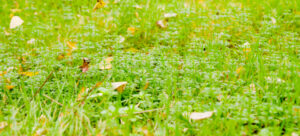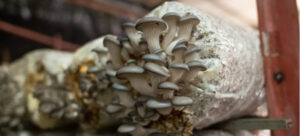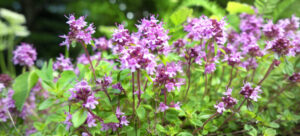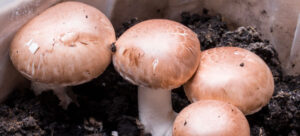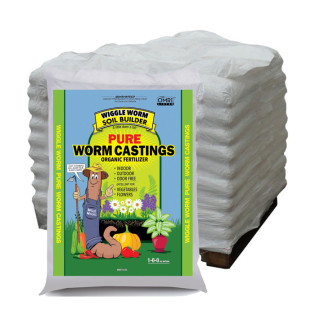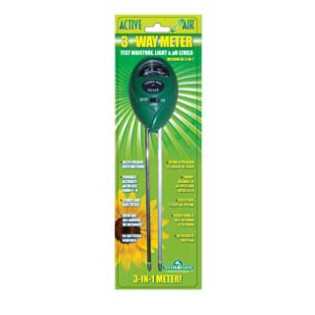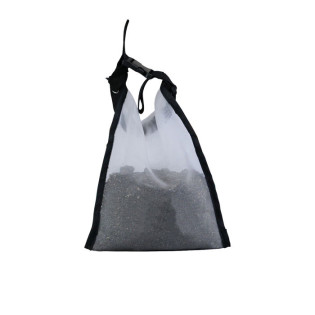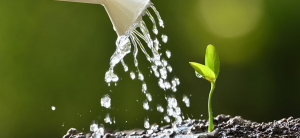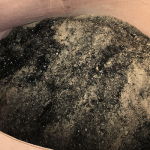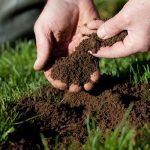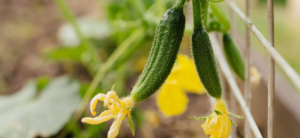
If you want to try and add some organic nutrition to your garden, you need to learn how to use worm castings!
You might already know just how beneficial live earthworms can be to a garden, helping break down bacteria and fungi into usable resources for your roots. But, adding dead earthworm castings to the soil can be even more valuable to your plants!
Read on to discover how to use this product in the garden, along with why you should even consider supplementing your existing nutrient regimen with them in the first place.
We’ll start by answering the question, what are worm castings? Then, we'll cover some basic information you need to know before adding this awesome amendment to your crop.
What Are Worm Castings?
What are worm castings, and why should you care?
You may have heard of growers amending their soil with harvested worm castings, but did you know you can actually use these as a source of fertilizer or plant food?
From the name alone, you can surmise that worms factor in the equation somehow.
But these products also include a mixture of active bacteria enzymes, remnants of plant material, along with the actual earthworm cocoons from which this product gets its name. But make no mistake, most of the magic does come from these castings.
They contain a wide array of essential plant nutrients, so if you are an organic grower, these are certainly an amendment or supplement to consider adding to your regimen. Harvested worm castings come from a worm farm.
Are Worm Castings A Complete Fertilizer?

Harvested worm castings are a great natural fertilizer. But can you bring your plants from seed to harvest with these alone? While they are a great source of vital nutrients and minerals for your plants, they are certainly not a complete fertilizer. What this means is you should not attempt to take a plant from seed to harvest with this product alone.
You’d need other organic amendments added into your soil or tea (the two ways you’d apply this fertilizer), such as bone meal, fish fertilizer, etc.
You should follow a specific recipe that contains all the necessary ingredients for healthy plants if you are looking to go this route. Our super soil recipe is one such example. However, earthworm castings do contain all three of the macronutrients, and some secondary nutrients as well:
- Nitrogen
- Phosphorous
- Potassium
- Calcium
- Magnesium
One of the best parts about using worm casting fertilizer is that you get an abundance of micronutrients and minerals your plants need for a well balanced nutrient ratio. Here are some noteworthy nutrients:
- Manganese
- Copper
- Zinc
- Iron
- Carbon
- Cobalt
- Borax
However, if you are an experienced grower looking to formulate your own fertilizer, you can definitely make worm castings the base nutrient. Then just add in a few other amendments to round out the nutritional profile and get a good balance of quick/slow release fertilizer.
What is the NPK of worm castings?
A lot of new growers hoping to use this amendment in their garden ask what the NPK ratio of worm casting fertilizer is.
This is a tricky question, because not every worm casting mixture is the same. It varies a bit brand to brand, so always look for the NPK ratio on your specific product to be sure.
Some products may not even display an NPK ratio for their worm castings. But, as a rule of thumb, it tends to be somewhere around 5-5-3. This is why these make a good base of any homemade fertilizer, because they contain a healthy, balanced does of the big 3.
What Are The Benefits Of Using Worm Castings For Plants?
We briefly mentioned what a great source of nutrition these are, but we want to talk about some specific benefits you will enjoy by adding these into your amendment process or feeding schedule aside from growing healthy plants.
Humus Content Fights Off Harmful Toxins & Fungi
Some species of bacteria and fungi are not only fine in the soil, but necessary for root health and plant growth.
But, there are certain toxins and fungi that can harm your plants. Luckily, earthworm castings tend to have incredibly high humus levels.
Humus has the ability to extract these toxins and fungi, and actually remove them from the soil! This helps prevent many plant illnesses and diseases from forming before they ever have a chance to take hold.
Earthworm Castings Serve As A Buffer For pH & Heavy Metals
Another unique benefit to growers who use worm castings in their soil or feeding schedule is they can act as a buffer for two different issues.
First, these castings can fix heavy metal problems in organic waste. When applied to the soil, they’ll prevent your plant from uptaking more chemical compounds than they need. This not only keeps those who consume your plants safer/healthier, it improves the taste and aroma of your plants!
But, that’s not all. Worm castings also help create a neutral pH in soils that are too basic or acidic. That’s not too say you won’t need to always test your soil pH, though.
Improve Water Retention & Soil Structure
When you mix them into your soil or apply them as a root drench, the castings will increase the soil’s ability to retain moisture.
This is because the castings themselves act as mineral clusters, preventing water erosion and compaction.
This results in fewer waterings required, saving you time and energy as the grower!
A Potent, Growth Stimulating Plant Nutrient!
On top of all of this, earthworm castings are obviously a powerful plant nutrient source. They stimulate explosive growth during veg, and give your plants the energy and nutrients they need for a heavy bloom phase.
One of the main components within the castings is responsible for this is humic acid. Even in relatively low levels, humic acid can not only stimulate plant development but soil colonization as well!
Are There Any Disadvantages Of Worm Castings?
Now, you've heard all the reasons we recommend trying out worm casting fertilizer or worm casting tea. Are there any disadvantages of worm castings, though?
The only problem with these is they can be a bit hard to come by sometimes. Fortunately for you, though, we are going to share some of the top organic worm casting fertilizer options currently on the market with you at the end of this article. Whether you use a worm casting tea or fertilizer, these are great products that will help you grow your best crop yet - completely naturally!
First, though, let's cover how to use worm castings for tea or dry amendments purposes.
How To Use Worm Castings In Potted Plants & Flower Beds Alike

Now that you’re sold on worm casting fertilizer, you are likely wondering how to actually apply this product to your garden, flower bed, or potted plants.
We briefly touched on it already, but there are two methods to apply this amendment: either mixing it into your dry soil, or composting it and applying a worm casting tea as a root drench.
We’ll cover both, and let you decide which method makes more sense for you and your grow!
How To Use Worm Castings As A Soil Amendment/Slow Release Fertilizer
We’ll start by talking about how to mix dry, organic worm casting fertilizer into your soil, as this is typically more prominent.
The application rate will vary depending on what else you have in your soil.
As we mentioned earlier, you should follow a pre-written super soil recipe if you plan on using these as a fertilizer. For example, our super soil recipe calls for anywhere from 25-50 pounds of worm castings, for a 100 pound soil batch.
If you just want to give your plants a boost of nutrition every so often, and you are using a barren soil with minimal nutritional value, that’s fine too. Simply sprinkle a handful or two around the base of your soil, and mix them in thoroughly.
The next time you water your plants, the moisture will activate the nutrients in your castings and help transport them to the root zone.
How Often To Apply Worm Castings
As we’ve said multiple times, the frequency and application rate for organic worm castings will vary based on what else you feed your plants.
If you feed only dry organic amendments, you may only need to apply worm castings once a month or so.
The best way to tell is to experiment with your plants and monitor for signs of nutrient deficiency. Yellowing or wilting indicates your plants are starving for some fresh nutrients.
How To Use Worm Casting Tea (Root Drench)
The alternative to conditioning your soil or sprinkling in dry castings is to use worm casting tea. This is essentially going to accomplish the same thing, but the absorption rate will be more immediate.
How Much Worm Castings To Use For Tea
Again, this will vary depending on what else you are adding into your fertilizer or tea. But, a good rule of thumb is 1 cup of worm castings for every 1 gallon of water (be sure to RO & pH your water if possible).
You should allow the castings to compost at least a week, allowing them to activate and disperse evenly throughout the tea.
One of the added benefits of using worm casting tea is that this is a form of pest prevention as well. Worm castings with compost is a potent liquid plant food, so you may not even need to use liquid nutrients if you go this route!
Can You Use Too Much Worm Castings?
One of the biggest advantages of using worm castings as plant food is it’s very rare to overfeed, and give too much worm castings.
These are a very gentle fertilizer, and won’t burn or damage your plants if you over apply. The only problem with overapplying is perhaps spending more money per feeding than needed!
Wondering Where To Buy Worm Castings?
If you are wondering where to buy worm castings, look no further than Hydrobuilder.com. We are an online garden superstore, and offer the best brands and products the industry has to offer, at the most affordable prices online.
Better yet, you’ll get to experience our world class service and support, helping you every step of the way as you build out your garden, grow room, or farm.
If you are a commercial grower, we can get you set up with one of our commercial representatives. They’ll be able to get you custom quotes and the items you need for even less!
But if you are just looking to buy the best organic worm castings out there, here are some recommendations.
Mother Earth Worm Castings Fertilizer
Mother Earth is known for producing premium grow media and plant nutrients, and their organic worm castings are no exception.
We carry Mother Earth Worm Castings in a pallet of 50, 1 cubic foot bags. This is definitely geared towards commercial growers shopping in bulk.
This all in one soil amendment is derived from worms that are carefully raised and fed a diet of composted forest humus, corn meal, greensand, gypsum, alfalfa meal, among many more plant superfoods. This means when you feed these worms to your plants, they get all that nutrition too!
You can use this product as either a potting soil amendment or make your own worm compost tea, however you prefer.
Unco Wiggle Worm Pure Worm Castings Fertilizer
Another great option is Unco Wiggle Worm Pure Worm Castings. Fortunately for hobby growers or those with a small home garden, we sell this product in a 15 pound option and a pallet of 75+ bags (total of 2,250lbs).
This is an OMRI certified organic fertilizer, meaning it is tested to the strictest standards possible. If you are looking to use organic worm castings in your grow room or garden, you cannot go wrong here.
Roots Organics Big Worm Casting Fertilizer
A third option is the Roots Organics Big Worm Castings. This option comes in a pallet of 60 bags, each containing 1 cubic foot of product.
The folks at Roots Organics feed their earthworms nothing but an organic, natural diet. Unlike many of the cheaper products on the market, you can rest assured you aren’t getting any fillers or chemicals with your earthworms.
According to the manufacturer, the best way to see the quality of this product is to visually monitor your plants when grown with and without it! The results will speak for themselves.
Final Thoughts On How To Use Worm Castings In The Garden
By now, you should have a good understanding of what exactly earthworm castings are, and why so many growers use these as the base of their fertilizer.
You also now have the knowledge to start introducing them into your garden, whether as a soil amendment or a worm compost tea.
And while one of the only disadvantages of worm castings is how hard they are to come by, you now know that this isn't even a concern for you! That's because we even shared where to buy organic worm castings, and the best products currently out there. Whether you want to create a dry worm casting fertilizer or your own worm casting tea, you are now equipped to do so!
If you have any more questions or need further guidance getting your garden or farm up and running, don’t hesitate to reach out to our experts!

